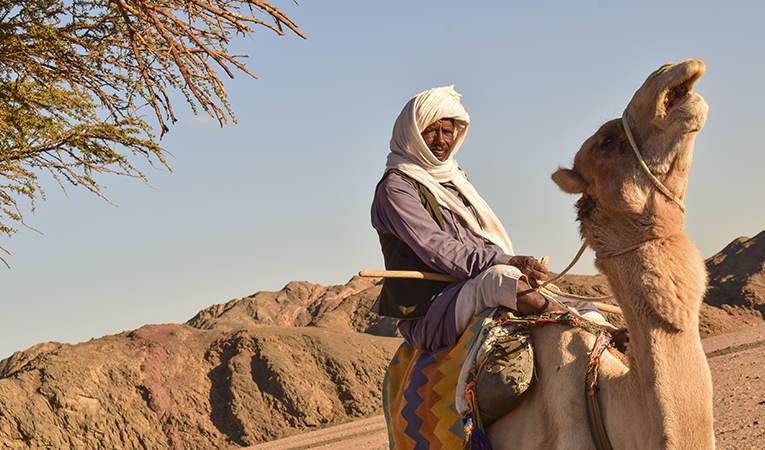The Ababda are one of two main tribes that make up the Bedouin population of Egypt's southeastern desert. The other is the Besharin. Although their traditional lands reach from the Red Sea to the Nile, differences in language and their nomadic lifestyle kept their culture distinct from the rest of Egypt.
Their main Arabic speaking tribe language is the “Beja”. The Beja dated
back to 4000-2000 BC and were most probably related to the ‘Blemmeys’ that had
alternating relationships with the romans during their occupation of the area
2000 years ago. they over-arch Beja culture in Egypt, Sudan, Somalia and
Ethiopia.
The Ababda are also called ‘The children of Abad’. The “Abad” came from the
Arabian Gulf Peninsula to Egypt around 1300 AD and is buried in Wadi Abadi near
Edfu. He claimed to descent from Abdellahi, the son of the famous Zubeir Ibn el
Awwaam, a close relative of the Islamic Prophet Mohammed.
The Ababda live partly in small settlements along the whole Red Sea coast, as
isolated families, in the mountains. Their main source of income is their
livestock of goats, sheep, camels and fishing. Over time though more and
more families move to villages and the men find work outside the mountains, in
construction work or the tourist industry.
The Ababda huts are built of matting woven from the leaves of the dom-palm.
The mats are stretched over a frame of long curved acacia sticks and fastened
by wooden skewers. The lower outsides, and insides of the hut are covered by
blankets and hand woven woolen carpets.
Their most famous common social drink is ‘gebena’, or hand roasted coffee
beans that are grounded with ginger and poured into a round earthen jar with a
long neck. With added water, the jar is placed between the glowing embers of
the fire to boil, and the coffee successively served with loads of sugar in
small porcelain cups. The minimum number of rounds to drink is 3 times.
Source: http://www.redseadesertadventures.com/bedouin_tribes.html












 All
All
 Politics
Politics
 Economy
Economy
 Tourism
Tourism
 Nature
Nature
 Community
Community

